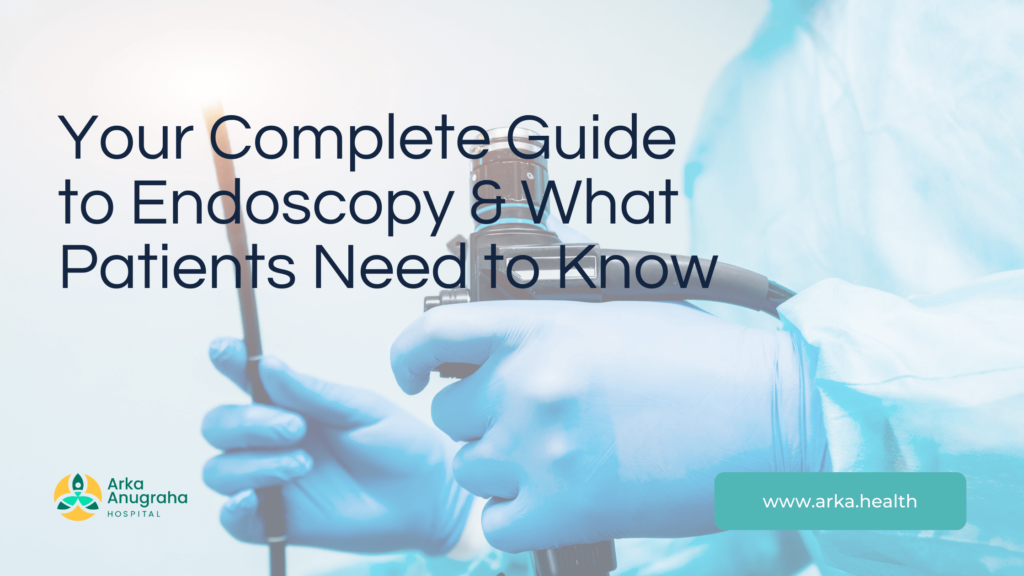
An endoscopy is a diagnostic procedure where organs inside your body are looked at using an instrument called an endoscope. An endoscope is a long, thin, flexible tube that has a light and camera at one end. Images of inside your body are shown on a television screen.
The procedure is used to diagnose any problems of the stomach, ulcers, pancreas or bile ducts that can cause abdominal pain (usually in the correct upper or middle stomach area) and yellowing of the skin and eyes (jaundice).
You will be required to fast prior to your procedure. The stomach should be empty to prevent stomach content from going into your lungs during the process. You should discuss all current medications with your doctor.
An intravenous (IV) line will be placed in order to provide IV fluids, sedating medications, and possibly antibiotics. Hydration with intravenous fluids and premedication with anti-inflammatory medicine is mandatory before Endoscopy to reduce the rates of complications.
You will be asked to remove any dentures or eyeglasses prior to the procedure. You will be brought to the Endoscopy procedure room and will be positioned on a special table.
You will be asked to lie on your left side, stomach, or back. A small plastic mouthpiece will be placed in your mouth to help protect your teeth and gums. Once sedation is administered, you can expect to be comfortable, asleep, or very relaxed. The procedure is generally well-tolerated and most people feel fine afterwards. Depending on what is seen during the Endoscopy, a variety of techniques may be performed, including taking biopsies, and widening the sphincter (sphincterotomy). removing stones, placing a stent (tube) across any narrowed areas, or other treatments.
The length of the procedure varies from 10 to 15 minutes. Air is introduced through the endoscope so that the endoscopist can see the inside of your stomach and intestine during the examination.
Once the procedure is completed, you will be brought to the recovery room and monitored while the sedative medications wear off. Sometimes patients feel mild abdominal discomfort due to the air in the intestines post-completion of the procedure. This is usually relieved by belching or passing gas. A sore throat is a fairly common complaint. It is treated with throat lozenges and typically resolves in one to two days. You may feel groggy or have difficulty concentrating, so patients are advised to rest for the remaining day. You will not be permitted to drive your car for the rest of the day.
Endoscopy is generally a safe and well-tolerated procedure, with minimal complications.
The report is available on the Hospital HIS system, and a printed report is handed over at the dispatch counter
If you experience any of the following symptoms after your Endoscopy:

Arka Anugraha Hospital dedicated to empower you regarding gut health, detox, weight loss, chronic conditions, metabolic syndrome, diabetes, and obesity.